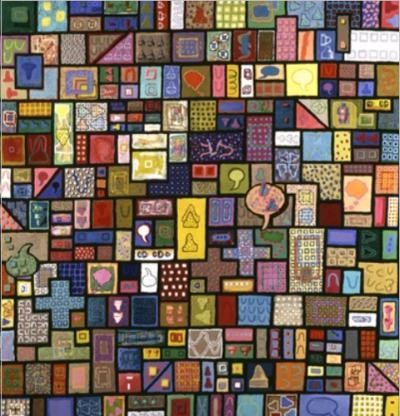Better Communication In One Second
I’m going to start a little geeky, but be patient, I’ll keep it super short & it’s totally relevant.
What’s interesting about TCP (heard of TCP/IP? Yeah, it’s part of that) is how the initial communication, the ‘handshaking’ bit goes. Very roughly, it’s goes like this:
- Hello? [SYN]
- I can hear you! [SYN-ACK]
- Me too! [ACK]
Here’s a picture I found to stop you falling asleep. See? They’re just starting a wee conversation:
(ok, geek stuff over. Told you it’d be short.)
So what, I hear you say. Well, TCP runs everything. The entire internet, any smart phone, hell they’re even talking about using it to talk to satellites out across the solar system. Anything smarter than a toaster these days depends on it to operate properly.
So yeah, it’s important.
And so are those “ACK”s. Notice how 2/3 of the initial conversation is just ACKs? Computers like to be ACKnowledged. It makes them feel safe & secure.
Well, here’s a secret – so do people.
See, the ACK doesn’t really add any useful information to the conversation, and yet, it’s critical.
It doesn’t answer any questions, doesn’t actually ‘do’ anything, and yet everything falls apart without it.
Same thing with human communication, we’re just more resilient, so that falling apart is less obvious.
If you say “Hey!” to a friend, and they don’t respond, how are you going to feel? Pretty terrible, I’d bet. At the very least, you’d wonder if they saw you, or maybe if you upset them somehow, or if there was something wrong.
All it takes is a flick of their eyes or a smile to let you know that your communication has been received & all is well in the world.
Of course, face to face communication is pretty obvious like that.
How about other forms, like email (or even twitter)?
How often have you received an email that you weren’t ready to answer immediately? Maybe you were busy, it was long, required thought, or you just weren’t in the mood. A response as simple as “Thanks for email, crazy day, will respond later tonight” can work wonders. It lets the other person know that their email has been received, that you’re just busy, and that they’re not being ignored. Plus it buys you a little time.
Twitter (or texting) is even more extreme, of course. But how often have you tweeted someone & got no reply, then wondered “Did I offend them?” “Are they ok?” “What’s going on?” Any of these thoughts would be a reasonable response, and all could be removed with a simple “Thanks! :)” or equivalent.
It’s not the length of reply that matters, just the emotion behind it. In fact, the shorter the reply the better, generally. Just enough to let the person know you’re there, you care, & you’re thinking of them.
It may feel like you’re over-communicating, but really you’re just acknowledging the importance of that other person to you.
How long does this sort of thing take? About as long as flick of the eyes across a crowded room. Maybe a second.
Quality communication is not about length. It’s about emotion & clarity. A quick genuine reply followed by a considered response later is far superior to a mammoth missive in a week, with the other person left hanging the entire time.
Also, it’s much less stressful for you, as you don’t have it hanging over your head with that same sense of urgency. You win, they win. What’s not to like?





